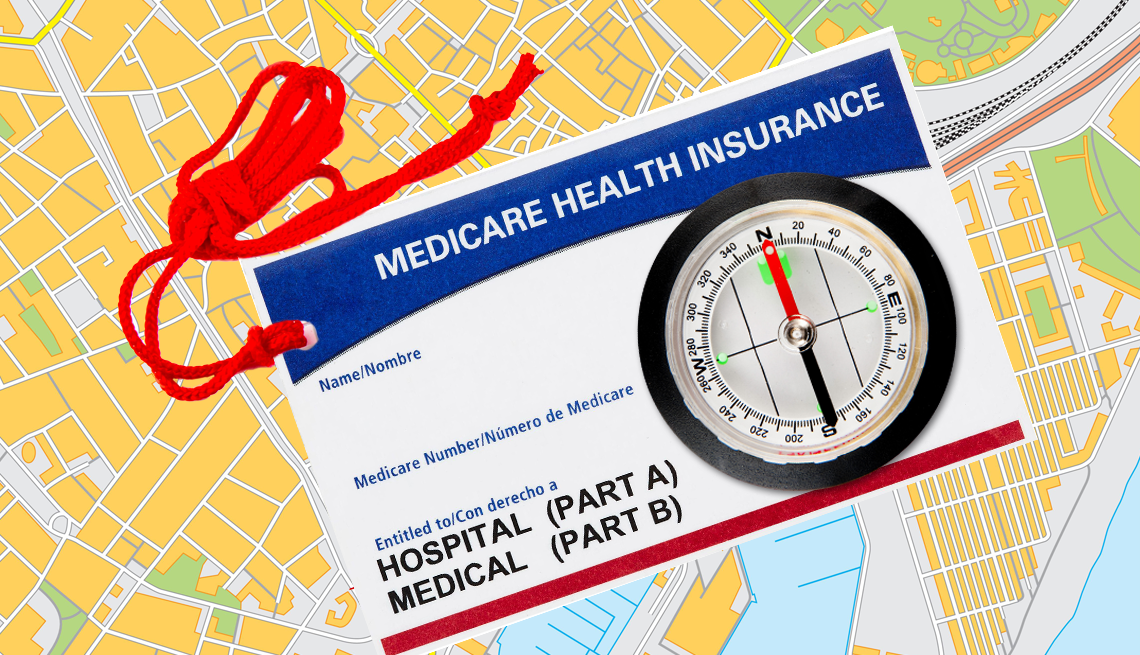AARP Hearing Center


Key takeaways
- Medicare won’t pay you to be a caregiver, even if you’re hurting financially.
- Access to records and online Medicare account is important.
- The Medicare handbook and some preventive care are free.
- Open enrollment gives a chance to reassess coverage.
- Programs help with chronic conditions, caregiver training, financial aid.
- Coverage has limitations. But denials can be appealed; hospice care is included.
- One-on-one assistance is available.
Medicare can be complicated when you’re making your own health care decisions, but it has an extra layer of complexity when you’re trying to help a sick or aging relative navigate the system.
Genesis Brown, a certified adult gerontology nurse practitioner in Dumfries, Virginia, says she often sees family members who suddenly become unpaid caregivers after their loved one is discharged from the hospital or diagnosed with a chronic condition. Her patients need follow-up care and medication management.
“Caregivers are being thrust into this new environment,” she says. “It’s overwhelming for families.”
If money is on your mind, you need to know that Medicare does not pay family members to be caregivers. A couple of other government programs might.
Some states’ Medicaid programs allow a family member or friend to become a paid caregiver through what are often called consumer-directed personal assistance programs. Medicaid is a joint federal-state program that provides health care for people of all ages on limited incomes, including more than 17 million age 50 and older.
Participants who need care in these programs have few additional resources and often long-term disabilities. They need help with bathing, dressing, eating, going to the bathroom and other self-care, and they or their legal representative manages the services they need, including choosing their own health care aide.
Some family members can get a small stipend for their work after meeting state requirements for training, certification and background checks. Your state’s Medicaid office has details.
Disabled veterans’ family members may be eligible for a monthly payment, caregiver training and mental health counseling. The care recipient must have at least a 70 percent disability rating and be enrolled in the Veterans Affairs Health Care system.
‘As a caregiver, you’re always on the defense’
If you find yourself in this club of about 38 million people, you’ll quickly need to learn how to provide care, navigate Medicare and become your loved one’s advocate — even if you’re not of Medicare age yourself.
“As a caregiver, you’re always on the defense, making sure [your] mother is being served well,” says Jessica Guthrie of Fredericksburg, Virginia. Guthrie, who has been caring for her mother, Constance, for more than 10 years, moved from Texas to Virginia as her mother’s caregiving needs increased because of Alzheimer’s disease.
“Twenty-four hours a day, my brain is thinking about navigating the system for my mom,” she says.
Guthrie was only 26 when she started providing care for her mother.
“I have put my life on hold in many ways. But you only get one mom, and I’m grateful to pour into her what she did for me,” the younger Guthrie says.
Beyond determining what Medicare covers and doesn’t cover, as a new caregiver, you need to know how to:
- Pick the best Part D or Medicare Advantage plan each year.
- Appeal a denied claim or prior authorization request.
- Apply for financial assistance.
- Take advantage of extra coverage for chronic conditions or caregiver support.
But your knowledge about Medicare shouldn’t end there. Here are a dozen tips for getting the best coverage for your loved one’s health care needs.
1. Make sure Medicare has permission to talk with you
Medicare can’t share claim or billing information with caregivers unless they have authorization from the Medicare beneficiary. Make sure your loved one fills out Medicare’s Authorization to Disclose Personal Health Information form.
If a Medicare recipient is unable to sign the form, someone legally authorized to act on behalf of that individual, often called a personal representative, can sign. But copies of the legal documents showing that authority, such as a power of attorney, must be attached.
Keep in mind that Medicare authorization is different from the paperwork needed to make medical decisions on someone’s behalf. For that, you need a health care power of attorney, also called a health care proxy.




































































Next in series
You Have a Right to Have a Medical Interpreter
Don’t speak English well? You can get free translation services